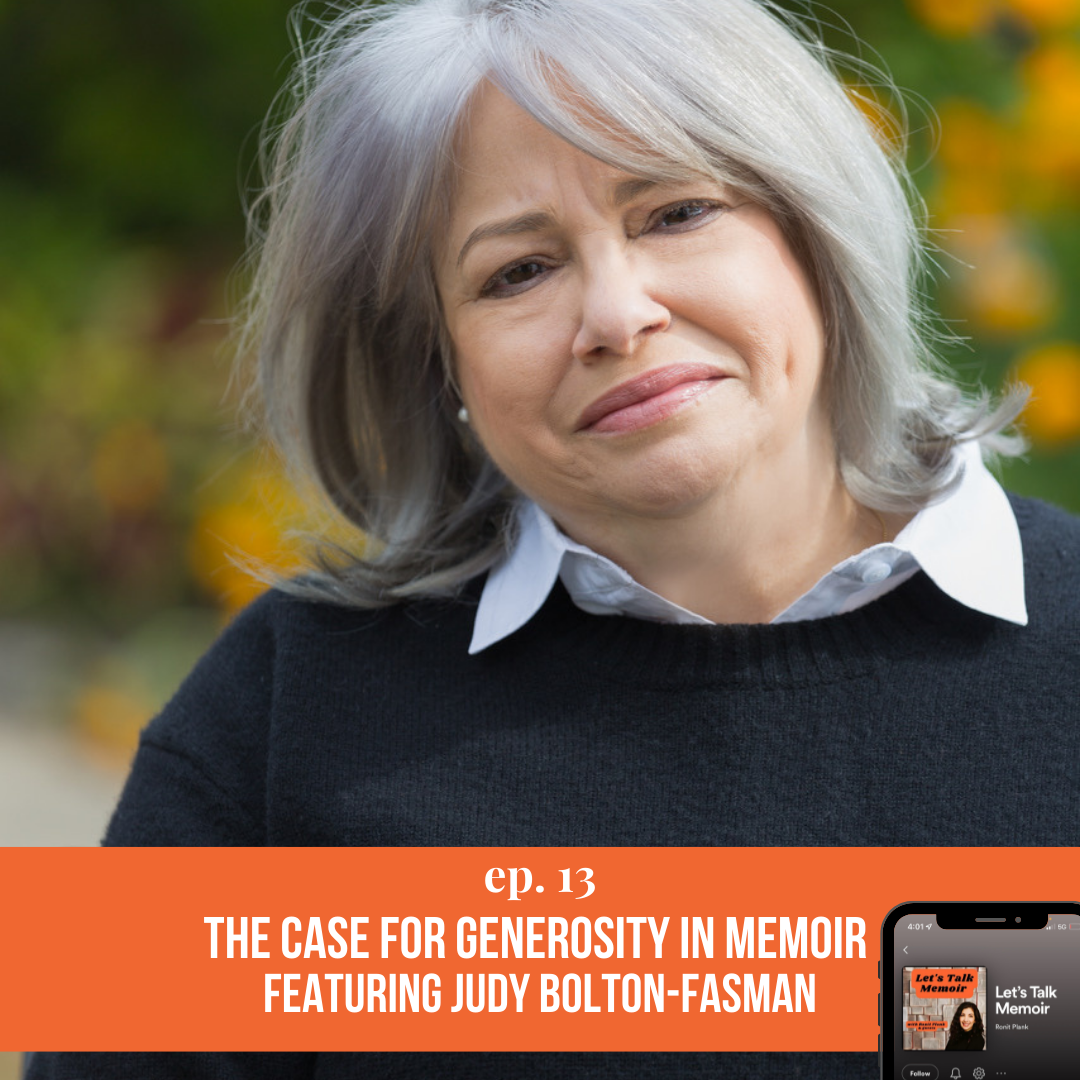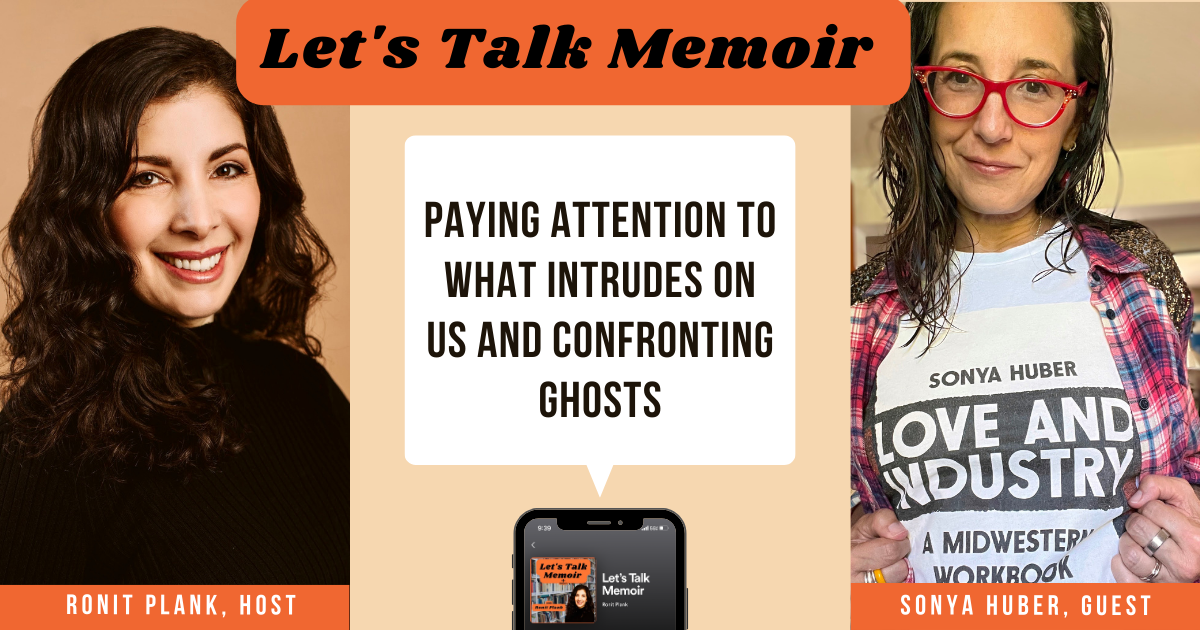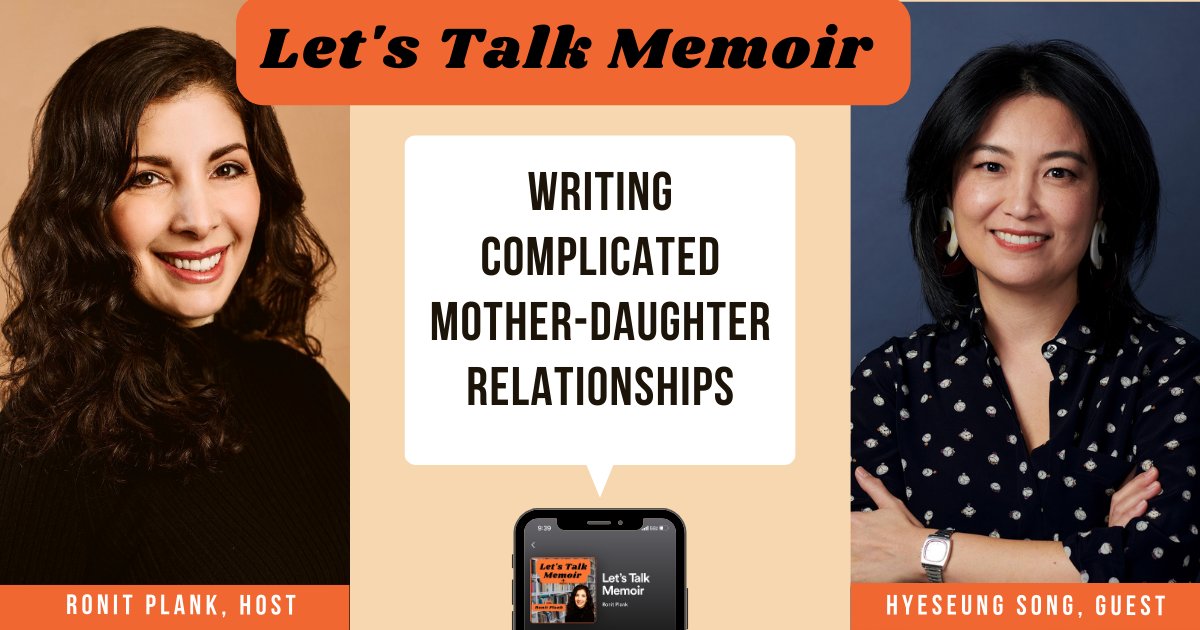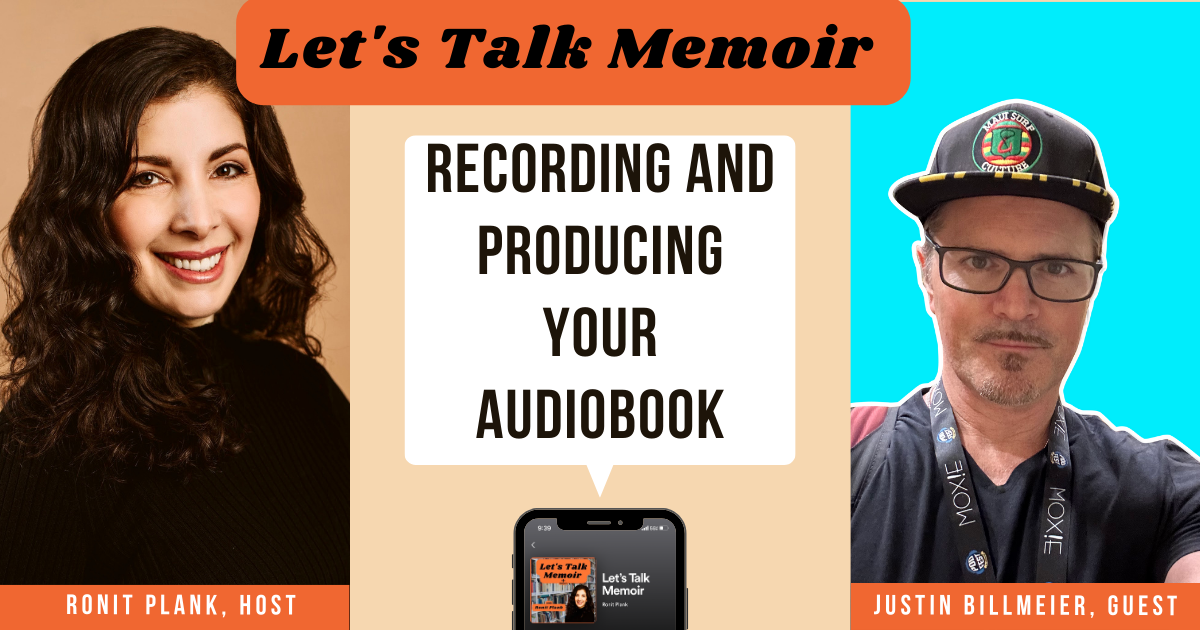Let's Talk Memoir
Episode 13 ft. Judy Bolton-Fasman

Judy Bolton-Fasman joins Let’s Talk Memoir for a conversation on how writing about complicated relationships with generosity creates stories and characters that stay with readers, the case for speculative nonfiction, the impact fellowships have had on her writing, negotiating family members who appear in memoir, and don’t-miss-encouragement for all artists.
Also in this episode:
- How seeds of her memoir began in fiction
- What blew her work open
- Ronit mispronounces illustrative
Judy Bolton-Fasman is the author of ASYLUM: A Memoir of Family Secrets from Mandel Vilar Press. Her essays and reviews have appeared in major newspapers including the New York Times and Boston Globe, essay anthologies, and literary magazines. She is the recipient of numerous writing fellowships, including the Alonzo G. Davis Fellowship for Latinx writers at the Virginia Center for Creative Arts. She is a four-time winner of the Rockower Award from the American Jewish Press Association and a two-time Pushcart Prize and Best of the Net nominee. She recently received an honorable mention in Tiferet’s Creative Nonfiction Essay Writing Contest.
YOU MAY ALSO LIKE
Episode 108 ft. Sonya Huber
Sonya Huber joins Let’s Talk Memoir for a conversation about her approach to generating essays, working on many projects at once, writing as exposure therapy, how essays in a collection talk to each other, paying attention to what intrudes on us, living and working in...
Episode 107 ft. Hyeseung Song
Hyeseung Song joins Let’s Talk Memoir for a conversation about being raised by a “beautiful but domineering” mother, breaking free from a legacy of self-worth via external achievements, writing complicated mothers, making the switch from memoir-in-essays to linear...
Episode 106 ft. Justin Billmeier
Justin Billmeier joins Let’s Talk Memoir for a conversation about his experience directing and producing audiobooks for a major publishing house, recording equipment costs and considerations for the indie memoirist, audiobook coaching and guidance, and the many...



